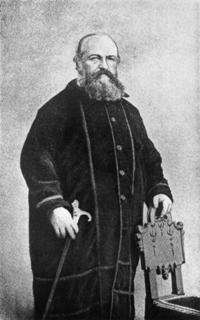A Quote by Thomas Jefferson
Error is to be pitied and pardoned: it is the weakness of human nature. But vice is a foul blemish, not pardonable in any character.
Related Quotes
The only thing that one really knows about human nature is that it changes. Change is the one quality we can predicate of it. The systems that fail are those that rely on the permanency of human nature, and not on its growth and development. The error of Louis XIV was that he thought human nature would always be the same. The result of his error was the French Revolution. It was an admirable result.
Would there not be the greatest reason to apprehend, that error in the first sentence would be the parent of error in the second sentence? That the strong bias of one decision would be apt to overrule the influence of any new lights, which might be brought to vary the complexion of another decision? Those, who know any thing of human nature, will not hesitate to answer these questions in the affirmative.
I have so great a contempt and detestation for meanness, that I could sooner make a friend of one who had committed murder, than of a person who could be capable, in any instance, of the former vice. Under meanness, I comprehend dishonesty; under dishonesty, ingratitude; under ingratitude, irreligion; and under this latter, every species of vice and immorality in human nature.
Even in a jungle, lovely flowers will spring up here and there, such being the fecundity of nature, and however badly our pastors and masters run our society, however much they pull to pieces that which they claim to be keeping intact, nature remains fecund, human beings are born with human traits, sometimes human strength outweighs human weakness, and human grace shows itself amid human ugliness. ‘In the bloodiest times,’ as our play has it, ‘there are kind people.’
These various habits of thought, or habitual expressions of life, are all phases of the single life sequence of the individual; therefore a habit formed in response to a given stimulus will necessarily affect the character of the response made to other stimuli. A modification of human nature at any one point is a modification of human nature as a whole.
The decisions we make, individually and personally, become the fabric of our lives. That fabric will be beautiful or ugly according to the threads of which it is woven. I wish to say particularly to the young men who are here that you cannot indulge in any unbecoming behavior without injury to the beauty of the fabric of your lives. Immoral acts of any kind will introduce an ugly thread. Dishonesty of any kind will create a blemish. Foul and profane language will rob the pattern of its beauty.
With both people and computers on the job, computer error can be more quickly tracked down and corrected by people and, conversely, human error can be more quickly corrected by computers. What it amounts to is that nothing serious can happen unless human error and computer error take place simultaneously. And that hardly ever happens.
We hardly know an instance of the strength and weakness of human nature so striking and so grotesque as the character of this haughty, vigilant, resolute, sagacious blue-stocking, half Mithridates and half Trissotin, bearing up against a world in arms, with an ounce of poison in one pocket and a quire of bad verses in the other.
Obviously making Peter Parker suddenly bisexual or gay wouldn't really make logical or dramatic sense. It was a hypothetical kind of question about the nature of these comic book characters and the nature of this particular character, and whether sexuality, race, any of those things makes any difference to the character of Peter Parker.


































